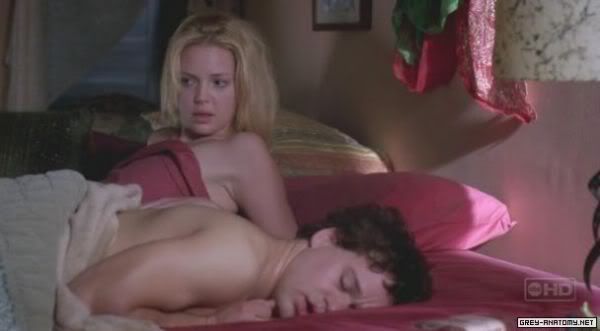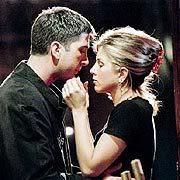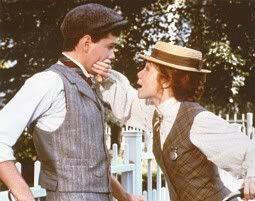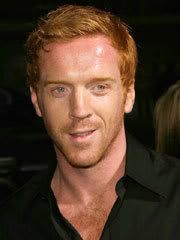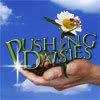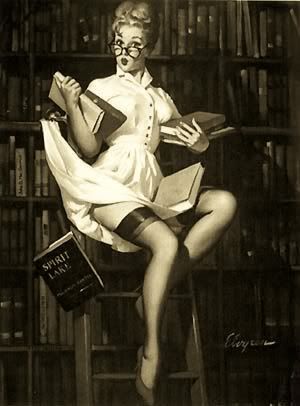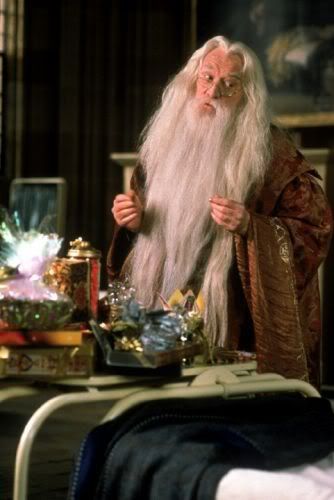 J.K. Rowling revealed that Dumbledore's gay. Hurray! Another reason to email my gal pals and analyze the Harry Potter series yet again. Part of our e-conversation below… please feel free to join the discussion with your comments!
J.K. Rowling revealed that Dumbledore's gay. Hurray! Another reason to email my gal pals and analyze the Harry Potter series yet again. Part of our e-conversation below… please feel free to join the discussion with your comments!The wizarding world seems to be somewhat less forward-thinking, socially, than the more liberal countries of our world. So maybe having gay relationships is Just Not Done, andif Dumbledore wanted to retain his post at Hogwarts, he had to keep his deep, passionate love for Ron's grandfather a secret.But of course, that's not what Rowling said. She said he never got over Grindelwald, and how upset he was when his One True Love turned out to be Wizard Hitler. And since I believe in authorial intent, I have to say that I find this tendency of her characters immature.
Kate: About the first love thing: in terms of our three main characters, it makes sense for them to end up with characters we've met. The romantic readers among us craved such an ending. It would have been a total cop-out if Rowling mentioned in the epilogue that Hermione broke up with Ron and met a lovely man at Wizard Grad School. That's just lame.
And Harry's parents had to have a shared Hogwarts history in order for their son to have plenty of "dead parent moments" at school. It's easier to build a connection between Harry and his parents if they have lots of places and people in common.
Snape and Dumbledore, both transformed eternally by their first love? Doesn't surprise me. After all, by Book Seven they parallel each other in a weird way.
I guess I'm also reassured because I sense back stories for some of the characters. I totally think Sirius was a big fan of loving and leaving the ladies. I wouldn't be surprised if Lupin had a relationship in his past that he thought was scarring but eventually got over. And you just know Trelawney did some kinky hoohah in the name of divination.


